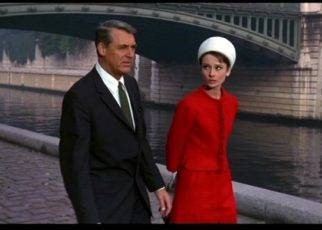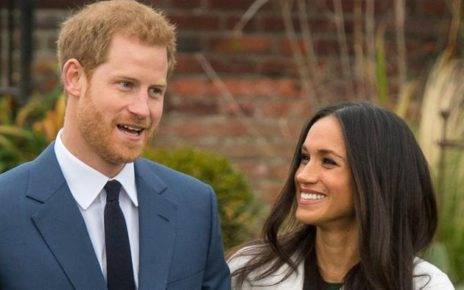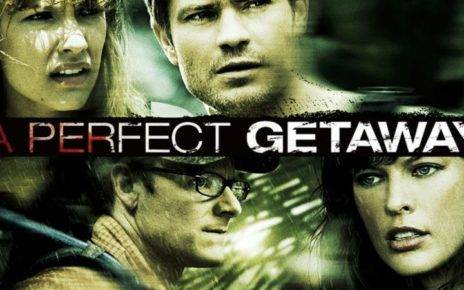Even director Stanley Donen performs his own deceptive charade. The director of such diverse films as Singin’ in the Rain (1952), The Pajama Game (1957), and Bedazzled (1967), Donen did his best Alfred Hitchcock impersonation while crafting this film. It looks, feels, and sounds like Hitchcock, and even stars Grant, who also starred in several of Hitchcock’s films. The main difference between their styles is the humor, which at its height of silliness in Charade lacks Hitchcockian subtlety.
There’s lots of comic irony in this film. Reggie hates secrets and lies. Deception broke up her marriage and now it threatens her life. She also finds herself falling in love with Peter Joshua (or whatever his name his), the biggest liar of them all.
Despite the substantial age difference between Hepburn and Grant, they have onscreen chemistry and it’s well within the realm of possibility that a childlike woman such as Reggie would latch onto a father-figure romantic interest. It’s also worth noting, that she pursues him romantically, while he pursues the money.
The villains each have unique personalities. There’s highly allergic Gideon (Ned Glass), the dim-witted cowboy (James Coburn), and the ultra-violent, one-armed Scobie (George Kennedy). Cary Grant’s character (with a list of changing names) seems charming and helpful, but his loyalty remains a mystery. Other threats present themselves from people whom Reggie least suspects.
Charade was nominated for an Academy Award for Best Music, Best Original Song (“Charade”), a song that appears throughout the film with and without the vocals. Henry Mancini (“The Pink Panther”) wrote the music and Johnny Mercer wrote the lyrics.





